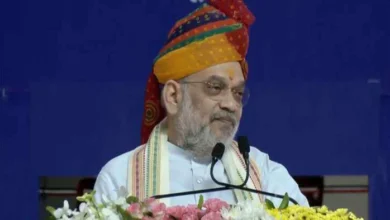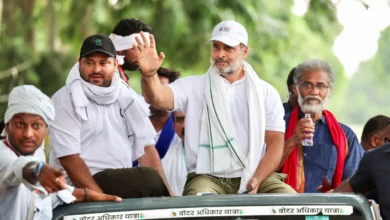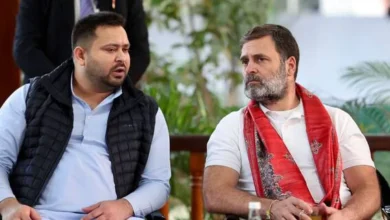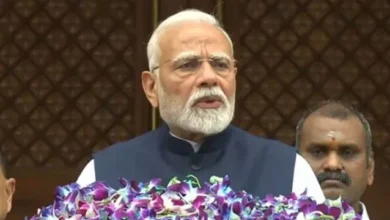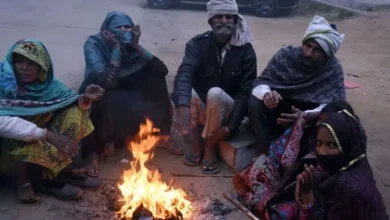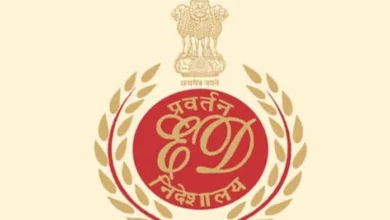Amit Shah inaugurates Rs 4 lakh crore projects in Rajasthan, unveils exhibition on new criminal laws
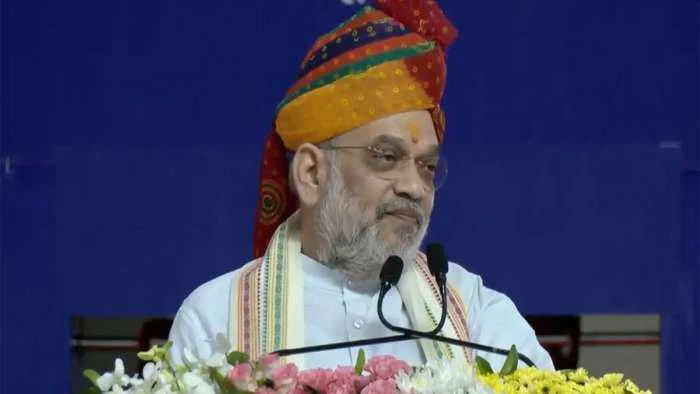
Union Home Minister and Minister of Cooperation Amit Shah on Monday, October 13, inaugurated investment projects worth Rs 4 lakh crore in Jaipur and opened a state-level exhibition highlighting India’s new criminal laws.
He also laid foundation stones for several development projects under the Rajasthan government. The ceremony was attended by Chief Minister Bhajan Lal Sharma, Union Home Secretary Govind Mohan and senior officials. Shah said the event symbolised the coming together of two key priorities – strengthening justice and accelerating growth – to improve the lives of citizens.
New criminal laws mark ‘biggest reform of the 21st century’
Addressing the gathering, Shah called the Bharatiya Nyaya Sanhita, Bharatiya Nagarik Suraksha Sanhita and Bharatiya Sakshya Adhiniyam the “biggest reform of the 21st century”. He said the new laws replace colonial-era legislation with Indian-made statutes focused on fairness, efficiency and accessibility.
“These laws will ensure justice within three years for every FIR registered after 2027,” he said, adding that they will make the criminal justice process people-centric and transparent. “Under the leadership of Prime Minister Narendra Modi, the government has made huge strides in Ease of Living; now these laws will bring Ease of Justice,” he said.
‘Justice over punishment’: reforms to speed up trials
Shah said the new laws redefine India’s justice system by focusing on rehabilitation and fairness rather than retribution. Provisions include e-FIR and zero FIR facilities, mandatory video recording of seizures, and compulsory forensic investigation for cases carrying punishment of more than seven years.
The laws also introduce new legal definitions for terrorism, mob lynching, organised crime and digital offences, while setting strict time limits in over 29 procedures. A system of trial in absentia will ensure that offenders who flee abroad can still be prosecuted.
According to Shah, within a year of implementation, 50 per cent of chargesheets are now being filed on time, and this is expected to reach 90 per cent next year. He said Rajasthan’s conviction rate has already improved from 42 per cent to 60 per cent and could reach 90 per cent once the reforms are fully in place.
He added that the National Forensic Science University (NFSU) and its affiliated colleges are training youth in modern forensic investigation to support the new system.
Rajasthan’s investment push gains momentum
Highlighting the state’s economic progress, Shah said that of the RS 35 lakh crore worth of Memoranda of Understanding (MoUs) signed at the Rising Rajasthan summit, Rs 7 lakh crore have already been implemented. The ground-breaking of Rs 4 lakh crore worth of projects marks the next phase of the state’s industrial expansion.
“These projects will create thousands of new employment opportunities for the youth,” Shah said, adding that the state has also launched development schemes worth Rs 9,315 crore across key sectors.
He praised the Bhajan Lal Sharma government for its focus on transparency, contrasting it with the previous administration. “The earlier government engaged in corruption over students’ uniforms, while the current government has transferred Rs 240 crore directly into the accounts of 40 lakh students,” he said.
The minister also mentioned that subsidies worth Rs 364 crore have been given to over five lakh milk producers to strengthen rural incomes. The state has also begun registration for 150 free electricity units per household.
Centre to procure 100 per cent of pulses from registered farmers
Appealing to farmers, Shah urged them to expand the cultivation of pulses and oilseeds to make India self-reliant. He announced that the Centre will buy 100 per cent of tur, masoor and urad grown by farmers registered with the National Agricultural Cooperative Marketing Federation of India (NAFED) and the National Cooperative Consumers’ Federation (NCCF) at the Minimum Support Price (MSP).
“Urad is already cultivated in Rajasthan, and tur can be easily grown here. Farmers should register with NAFED and NCCF to ensure full procurement at MSP,” he said. He said the initiative will help raise incomes while ensuring the country’s self-sufficiency in pulses and edible oils.
‘Laws made by Indians for Indians’
Shah said the new criminal laws replace those made by the British to rule India with laws made by Indians to deliver justice to Indians. “This marks a historic transition from colonial control to citizen empowerment,” he said. He added that Prime Minister Modi’s reforms have transformed governance and improved daily life, and the new laws will extend that vision to ensure swift and fair justice. “These laws will ensure that justice is not delayed but delivered on time – simple, transparent and accessible to all,” he said.
